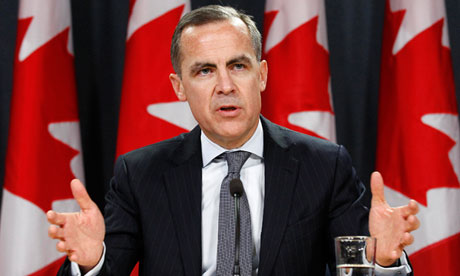Over this past week, I have been reading lots about the Bank of England's history. Up until World War I, bank governors typically held office for only two years (click here). However, during the tumultuous years from 1920 to 1944, Montgau Norman held the position of Governor. Since then, Governors have typically served for a decade. In the past, Governors were a mixture of City merchants and Bank insiders.
Notably, the Bank's current Governor (Mervyn King) and its future Governor (Mark Carney) both have PhDs in economics. However, unlike King, Carney has 13 years experience working in the financial sector. What is the ideal background for the Bank's Governor? Some fear that academics are too far removed from commerce to be good Governors. Others fear that individuals who have never previously worked for the Bank of England make poor Governors. Robert Peston fears that Carney is another Goldman Sachs alumnus in a very important position.
